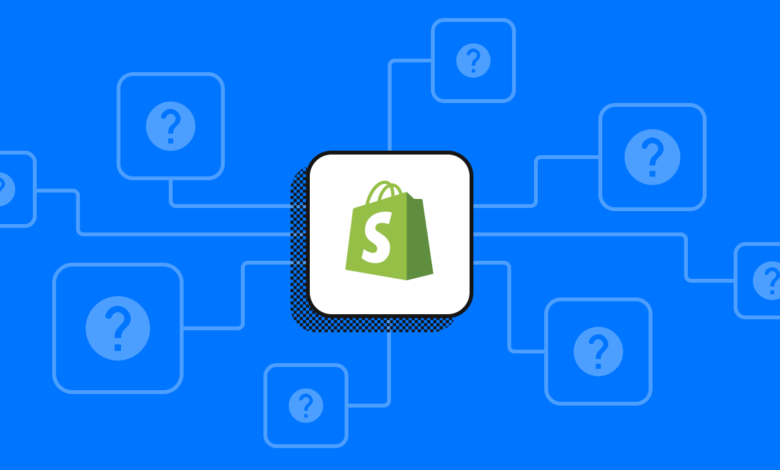The 5 important questions and answers about Shopify apps

If you have already dealt with Shopify, the terms “Apps” and “App Store” will certainly have crossed your path. Sure, everyone knows apps. Whether for the smartphone, tablet or PC, we use the applications almost daily as practical tools in the job or everyday life.
1. What is an app on Shopify anyway?
Basically, Shopify apps are feature enhancements for Shopify shops. They can be very complex, such as accounting systems or recommendation engines, or just let Christmas JavaScript snow trickle on online shops.
The pivotal point for all these apps are our various APIs, through which external apps can access Shopify data, such as products and orders. The reason: Since Shopify is a SaaS solution, plugins cannot simply be installed, as with other on-premise systems where you have complete access to the application code.
Instead, apps on Shopify are standalone applications that must be operated as a service by the respective provider. Because as we will see below, it is not enough as a developer to “only” deliver code. Rather, the provider of the app must not only hire dedicated shopify developers, but also take care of hosting and scaling.
Shopify apps are therefore not installed in the true sense of the word, but authentication takes place between Shopify’s APIs and external apps.
2. What are the different types of apps?
There are essentially two different types of apps in the Shopify universe. One group are the so-called custom apps: they are typically programmed for individual projects in order to realize a certain behavior in a shop. These apps are not public and do not go through the app review process.
The counterpart is public apps. They are published via the App Store and purchased and installed by retailers worldwide. This second form of apps must meet certain quality criteria and therefore undergo an internal review process.
There are other Shopify applications which are especially set for the convenience of the sellers. Some of them are website designing, and the others are like a live chat app. These help you to engage with your audience, and be more proactive with reviews.
In addition, this app form allows partners to earn money with them – we will discuss how exactly this works below.
For the sake of completeness, the so-called private apps (private apps) should also be mentioned. These are also non-public applications that differ in their authentication process and can be less integrated into the Shopify backend.
3. In which language are Shopify apps built?
The programming language in which you build the apps that you would like to find later in our shop is entirely up to you. Apps in the Shopify context are standalone applications that communicate with our platform via one or more APIs.
Which technology you use to map your business logic and model your data depends above all on which language you are familiar with and what is the right choice for the respective use case. As a rule, developers rely on non-blocking technologies such as Node.js for apps to keep their application scalable, which is an important quality feature, especially for public apps.
4. How does the Shopify App Store work?
Our app store is a directory of all apps available worldwide (now over 3000) that retailers can install in their shops without further programming knowledge. To find the desired application, either use the search or filter by category. These can be, for example, warehouse management or marketing.
Each application has its own entry in the shop, which contains an explanation, screenshots, cost information and possibly a video explaining how it works. Many apps are provided free of charge or offer a free version. However, there are also paid offers, which are usually calculated in the subscription model on a monthly basis.
And last but not least, users can rate the apps in our shop and leave a comment so that retailers can quickly get an overview of the quality and usefulness.
If the decision for an app is positive, retailers install it in the admin area of their Shopify account with just a few clicks. If it is a paid extension, the corresponding fees will be collected together with the Shopify monthly amount.
You can find more details on this topic on https://digitalsuits.co/solutions/saas/.
5. Is it worth offering your own with the abundance of apps?
As a partner team, we are often asked whether it still makes sense to place another app with the abundance of available apps. Our answer: absolutely.
It is true that there are a wealth of extensions in the App Store for almost all situations in life. However, in many cases, these are designed for a worldwide audience, sometimes only available in English and may not completely reflect local and regional peculiarities.
In other words, if you have an idea that can add value to especially local traders, you should definitely consider implementing it as a public app.
On the other hand, this does not mean that the international market is uninteresting or skimmed, quite the contrary. Here, too, we see a number of current app success stories and we can only encourage you to offer your app in English and other languages – with the appropriate support, this signi




